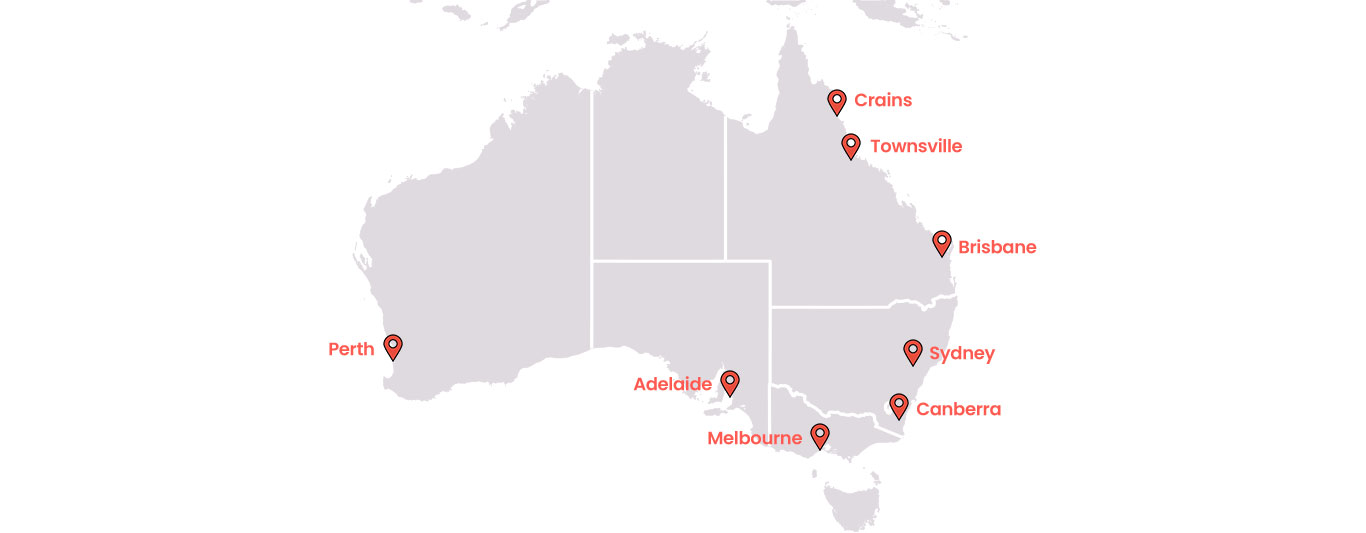Competitive Removal Quotes Online
Local
Removals
Removals
Experience fast and safe removals for short distances at unbelievably low prices
Call Us
Get a Quote
Cost CalculatorInterstate
Removals
Removals
Move your items swiftly to a different state with fast and hassle-free interstate removals
Call Us
Get a Quote
Cost CalculatorStorage
Services
Services
State-of-the-art storage facilities keep your valuable belongings safe and intact during long-haul transits
Call Us
Get a Quote
Cost CalculatorRural/Country
Removals
Removals
Fully licensed removalists offer rural,country removals, complying with all the necessary requirements and paperwork
Call Us
Get a Quote
Cost CalculatorPacking
Service
Service
Eliminate the stress and hassles related to packing items before move-outs as professional removalists will take care of your belongings and handle them with care
Call Us
Get a Quote
Cost CalculatorAre You A Removalist Company?
Sign Up Today For A Free Trial And Experience The Difference
If you are a legitimate removals company, with a registered ABN and a reputation for providing first class removals services at competitive prices, then sign up and experience the difference. All applicants go through a vetting process to ensure we are only providing customers with reputable first-class removalists companies. We give new businesses a tempory free trial, so you have nothing to lose and everything to gain!
Sign Up Today
Call Us 1300 547 069

Find Quality Cheap Removalists In Your Local Area
 Working with only trained and experienced moving Companies
Working with only trained and experienced moving Companies Let us get you in touch with the most affordable Removalist
Let us get you in touch with the most affordable Removalist Finding the best removalist with over 10 years experience
Finding the best removalist with over 10 years experienceWhy Choose Us
01.
We Provide 3 Cheapest Quotes
Having years of industry experience, we provide you with 3 most competitive quotes based upon your relocation needs and make move-out less time-consuming.
02.
Easy Filling Online Form
Our online form is easy to navigate and fill up. Specify your move-out date, type of relocation, number of rooms to downsize etc and professional removalists will take care of the rest.
03.
Trusted & Licensed Company
Having satisfied thousands of clients with unbeatable quotes over the past few years , we have emerged as a trustworthy name you can partner with.
04.
Peace of Mind
We understand that budget is a concern when it comes to home, office or warehouse relocations and 3 professional removalists ease your worries by providing competitive pricing.
05.
We Deal with the Hard Work
Be it local moves, interstate or country removals, we take care of your countryside moving needs and provide you with the most comfortable relocation experience.


Our Service Area
Do you need to know more about any of the moving services that we offer or have queries? Connect with us today, and we will solve them step by step
Save Time
To save time on removals, Compare Cheapest Removalist is the right solution since we have the necessary resources at our disposal that enable us to complete relocations on time and with perfection
Save Money
As removalists, we stand out from the rest due to the affordable pricing for our services. So, if you want to save money on relocation, we will always be the top choice
Stress-Free Moving
Our moving services are hassle-free since we manage relocations attentively. Thus, as a client, you will not need to invest your time in supervising the moving process. Rest assured that we will handle everything with care
What people are saying about us
Areas We Service
- Removalist Cronulla
- Removalist Surry hills
- Removalist Miranda
- Removalist Campbelltown
- Removalist Picton
- Removalist Camden
- Removalist Rouse hill
- Removalist Castle hill
- Removalist Chatswood
- Removalist Manly
- Removalist Brookvale
- Removalist Mona vale
- Removalist Avalon beach
- Removalist Palm beach
- Removalist Windsor
- Removalist Richmond
- Removalist Penrith
- Removalist Glenmore park
- Removalist blacktown
- Removalist Bella vista
- Removalist Baulkham hills
- Removalist Hornsby
- Removalist Box hill
- Removalist Spring farm
- Removalist Catherine field
- Removalist Harrington park
- Removalist Mount Annan
- Removalist Oran park
- Removalist Caringbah
- Removalist Sylvania waters
- Removalist Taren point
- Removalist Sutherland
- Removalist Menai
- Removalist Kogarah
- Removalist Ramsgate
- Removalist Rockdale
- Removalist Hurstville
- Removalist Brighton le sands
- Removalist Bexley
- Removalist San souci
- Removalist Peakhurst
- Removalist Five dock
- Removalist Glebe
- Removalist Marrickville
- Removalist Canada bay
- Removalist Strathfield
- Removalist St peters
- Removalist Castle cove
- Removalist Killara
- Removalist Kirribilli
- Removalist Milsons point’
- Removalist Roseville
- Removalist North Sydney
- Removalist Neutral bay
- Removalist Mosman
- Removalist sydney
- Removalist Wetherill park
- Removalist Epping
- Removalist Kellyville
- Removalist Pennant hills


